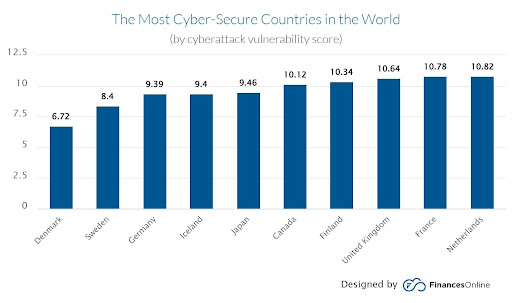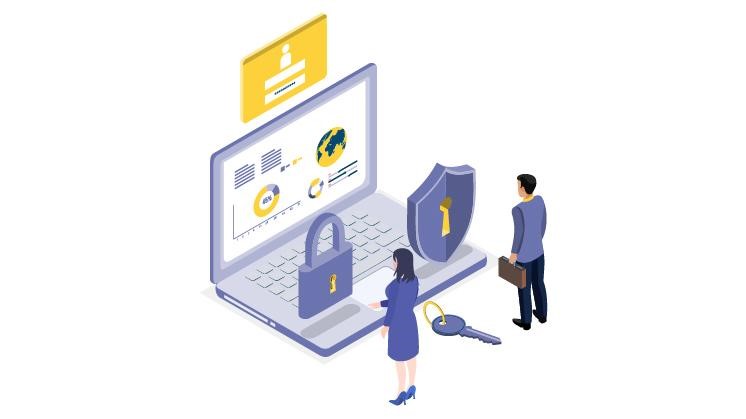If you run or plan to set up an eCommerce website, you know security is paramount. Not only do you need to protect your own business interests, but you also have a responsibility to safeguard your customers’ information. eCommerce security should be at the top of your mind when running an online store. The global cybercrime damage recorded in 2021 was around $16.4 billion per day. That means that if you aren’t careful about securing your site, you’ll end up losing a lot this year.
Many eCommerce security solutions are available, and the best one for you will depend on the size and scope of your business. But no matter what solution you choose, there are some basic security measures that all eCommerce websites should take.
What is eCommerce Security?
To be precise, eCommerce security is your site’s basic cyber security that offers a safe digital environment for both your consumers and visitors. The checkout phase is susceptible as your customer will share their personal details. If your site has weak cyber security, your customers may have to suffer a loss due to your negligence regarding this matter.
Here is a look at the most cyber-secure countries in the world;

Your website should give customers the freedom to buy without any risks. Therefore, it has become crucial for you to invest in cybersecurity this year. According to research, around 55% of business executives plan to increase their cyber security budgets in 2021. – It’s time you also gave it a thought!
How to Tackle Security Issues in eCommerce
There are several ways to tackle security issues in eCommerce that you should know. Here are a few tips we think are crucial in helping you get started.

1. Use a Secure Connection
The first step in eCommerce security is ensuring that your website uses a secure connection. This means that all data shifting between your website and visitors’ browsers should be encrypted. Installing an SSL certificate on your server is the easiest way to do this.
Additionally, secure key management is crucial to maintaining the trustworthiness of your SSL certificate, ensuring that encryption keys are also properly protected and managed.
2. Keep Your Software Up-To-Date
One of the most common ways eCommerce websites are hacked is through outdated software. Be it distribution ERP software or CRM, By keeping your software up-to-date, you can close any security holes that attackers might exploit. Whenever possible, set your software to auto-update so that you don’t have to remember to do it manually.
3. Use Strong Passwords
Another way to protect your eCommerce website is by using strong passwords. Avoid using dictionary words or easily guessed phrases like “password” or “123456”. Instead, use numbers, a mix of letters, and special characters. And don’t use the same password for every account—if one password is compromised, all your accounts could be at risk. Instead, use a strong password and a password manager tool. With a password generator, you can create strong passwords for your website’s utmost security. Almost all browsers, including Opera and Brave, have built-in password managers, so doing a quick Opera vs Brave would be useful to determine which browser’s password manager aligns better with your preferences and security requirements. Here are a few more password tips to consider;
- Never share your password with anyone.
- Maintain a habit of changing passwords every once in a while.
- Avoid sharing personal information publicly.
- Utilize a reliable password manager.
4. Restrict Access to Sensitive Data
There are some parts of your eCommerce website development that should only be accessible to authorized personnel. To protect sensitive data, such as customer credit card information, ensure that it is stored securely and that only those who need access have it.
5. Monitor Your Website for Suspicious Activity
Even if you take all the necessary security measures, it’s still possible for your eCommerce website to be hacked. That’s why monitoring your website for suspicious activity and investigating any potential breaches immediately is essential.
6. Use Payment Gateways
Another good e-commerce security solution is to use a payment gateway like PayPal or Stripe. These services provide an additional layer of security by processing payments through their own secure servers. This can help stop hackers from gaining access to your customer’s payment information.
In addition, introducing these payment gateways in your online store will attract more users to buy from you. In 2021, over 426 million people had a PayPal account. That means they’ll be comfortable paying through this payment gateway.
7. An SSL Certificate is Necessary
One of the most critical eCommerce security solutions is a secure socket layer (SSL) certificate. This will encrypt sensitive information like credit card numbers and customer data, making it much more difficult for hackers to steal this information. You can also use a software solution like Magento or WooCommerce, which offers built-in security features to help protect your site. However, even with an SSL certificate and secure platform, it is still important to regularly conduct security checks such as Magento security audit to identify any vulnerabilities that may arise from theme customizations, extensions, or configuration changes over time.
8. CVV (Card Verification Value) Verification
One of website protection’s most important steps is asking for the CVV number for online transactions. Card Verification Value (CVV) is the 3 or 4-digit code found on the back of credit cards. Cybercriminals may have stolen credit cards, but when they fail to provide CVV numbers, the transaction is not completed and done.
9. Employ Multi-Layer Security and use Firewalls
A great way to secure your website from hackers is to install firewalls. You can utilize top firewall software and plugins that regulate all the traffic that comes in and out of your website. A firewall gives limited accessibility, allows only genuine websites, and avoids harmful websites that can inject SQL injections and cross-site mappings.
Also, a good firewall will allow you to control and regulate traffic flow in and out of your eCommerce site. Once the firewall is active, only trusted visitors will be allowed on your website.
Other than that, a CDN can also be a great way to protect your site from DDoS attacks and hackers. Cybercriminals will use the latest technology to get past your security, but you need to be ready. Two-factor authentication can be a reliable option to enhance the level of protection. This will require the user to enter a passcode that will be sent to their email address or via SMS after they enter their username and password. Two-way authentication is a must in today’s era filled with countless cyber threats. Lastly, incorporating an email verifier into the two-way authentication process adds another layer of security, verifying the authenticity of provided email addresses and strengthening protection against cyber threats. You can go even further and consider a passwordless authentication process, like using magic links, which adds another layer of security.
Read Also: Best Startup Tools & Resources to Grow Your Business
10. Train your Staff
Your staff should always be aware of all the security policies and laws. Regularly train your staff regarding your website’s security. You can also test them occasionally to ensure they are ready and aware of what to do to avoid cyber threats.
Also, once an employee leaves your organization, immediately revoke access to all company data and emails. In addition, change the passwords of all accounts to avoid any future cybercrime.
Wrap Up
By following these tips, you can help ensure that your eCommerce website is secure and that your customers’ information is protected. Cybersecurity is something that needs to be focused on 24/7/365. eCommerce security is important to running a successful online business, so don’t overlook it.